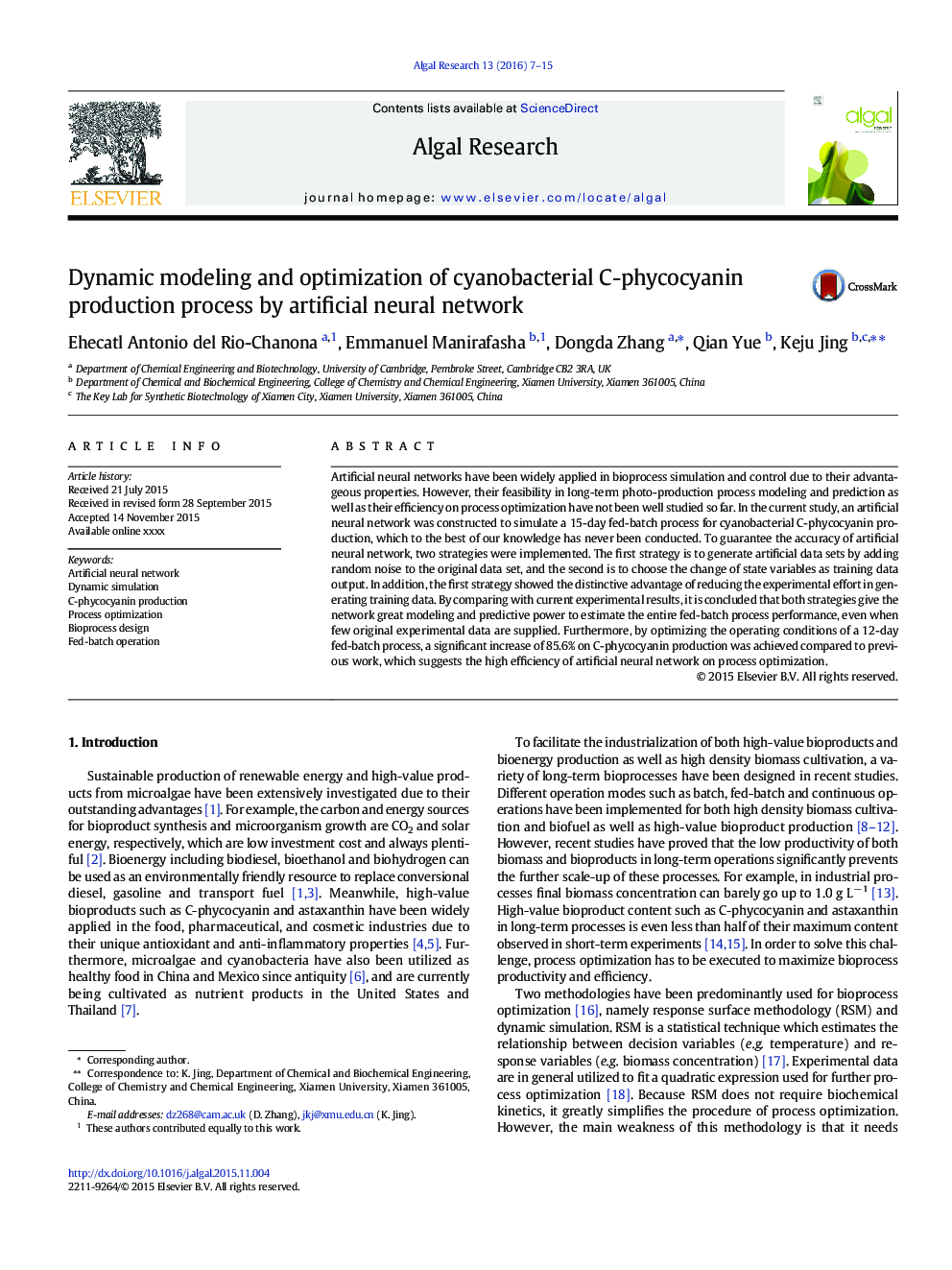| Article ID | Journal | Published Year | Pages | File Type |
|---|---|---|---|---|
| 8087436 | Algal Research | 2016 | 9 Pages |
Abstract
Artificial neural networks have been widely applied in bioprocess simulation and control due to their advantageous properties. However, their feasibility in long-term photo-production process modeling and prediction as well as their efficiency on process optimization have not been well studied so far. In the current study, an artificial neural network was constructed to simulate a 15-day fed-batch process for cyanobacterial C-phycocyanin production, which to the best of our knowledge has never been conducted. To guarantee the accuracy of artificial neural network, two strategies were implemented. The first strategy is to generate artificial data sets by adding random noise to the original data set, and the second is to choose the change of state variables as training data output. In addition, the first strategy showed the distinctive advantage of reducing the experimental effort in generating training data. By comparing with current experimental results, it is concluded that both strategies give the network great modeling and predictive power to estimate the entire fed-batch process performance, even when few original experimental data are supplied. Furthermore, by optimizing the operating conditions of a 12-day fed-batch process, a significant increase of 85.6% on C-phycocyanin production was achieved compared to previous work, which suggests the high efficiency of artificial neural network on process optimization.
Keywords
Related Topics
Physical Sciences and Engineering
Energy
Renewable Energy, Sustainability and the Environment
Authors
Ehecatl Antonio del Rio-Chanona, Emmanuel Manirafasha, Dongda Zhang, Qian Yue, Keju Jing,
